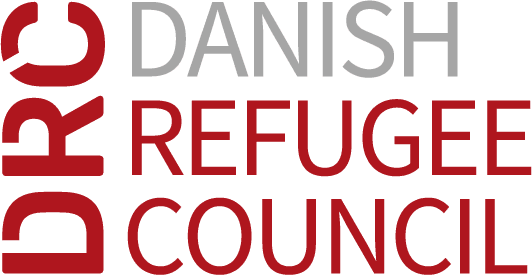

Global Ties: Palestinian Diaspora Mobilization for Gaza Relief
16 July 2025
The situation in Gaza has deteriorated into one of the most severe humanitarian crises in recent history, with over two million people trapped under siege, deprived of basic necessities and life-saving aid. What began as a military campaign by Israel in the aftermath of Hamas-led terror attacks on 7 October 2023, has morphed into grave assaults on civilian life. Entire neighborhoods in Gaza have been flattened, hospitals bombed, and access to food, water, and medicine has been deliberately obstructed.
As highlighted by several international NGOs, humanitarian aid must not be co-opted or manipulated for military or political ends - a principle repeatedly violated in this context. Meanwhile, the Palestinian diaspora continues to offer critical humanitarian support, while also demanding accountability for what is increasingly recognized as a systematic dismantling of human rights, livelihoods, and life itself.
Severe shortages of shelter, food, medical services, clean water, education, and access to livelihoods have compounded the crisis. Civilians there have faced conditions unfit for human survival, with no safe place to be in within the Gaza Strip or opportunities to flee outside, for much of the escalated hostilities’ duration. - OCHA oPt
The Palestinian Diaspora – A Legacy of Displacement and Resilience
The Palestinian diaspora is one of the oldest in the world and, as of June 2024, nearly 6 million Palestinian refugees were registered with UNRWA. The global Palestinian refugee and diaspora community is widespread, from Mexico with about 20,000 to Guatemala with over 200,000 and over 250,000 in the USA. This global presence is rooted in two major historical events: the Nakba of 1948 and the 1967 Six-Day War, which has led Palestinians to live in or at risk of forced displacement in the Occupied Palestinian Territory for over 70 years.
Despite decades of forced displacement, Palestinian diaspora communities remain deeply connected to their roots and have taken on active roles in supporting local actors and communities by providing financial and logistical assistance, advocating for humanitarian needs, raising awareness, and monitoring human rights violations affecting Palestinians.
Since October 2023, Palestinian diaspora-led organizations have increasingly mobilized around the world in response to the escalating humanitarian crisis in Gaza. Drawing on longstanding community ties and deep cultural connections, these organizations have become critical lifelines for affected Palestinian families.
Mapping the Diaspora’s Humanitarian Response
To better understand the work of these communities, DEMAC undertook a mapping of 81 Palestinian diaspora organizations (PDOs) worldwide. Through online research and an informal snowball survey, DEMAC aimed to capture the diversity of these actors and their vital roles in humanitarian assistance.

The findings revealed a vibrant and diverse network:

These organizations operate across various sectors including:

Case Study Taawon - mobilizing local partnerships for urgent humanitarian support
Established in Geneva in 1983 by Palestinian and Arab business leaders, Taawon is one of the largest organizations supporting Palestinians in Palestine and refugee camps in Lebanon. With nearly $900 million invested in development and humanitarian relief, it annually impacts over one million lives, focusing on education, cultural identity, and social services. Through the 2023 Gaza Emergency Relief Campaign, Taawon raised $11.7 million, delivering food, water, healthcare, shelter, and mental health support through partnerships with 20 local organizations in innovation, sustainability, and gender equity.
Strengths and Challenges of Diaspora Response
Both large and small PDOs provide support to local NGOs in Gaza. Traditionally focused on education and medical aid, large PDOs such as Taawon and UPA have pivoted to full-scale emergency relief since October 2023. They have provided vital resources including clean water, shelter, and mobile medical teams, while supporting smaller, grassroots groups to navigate bureaucratic barriers.
On the other hand, smaller PDOs offer deep community knowledge and personalized responses. They excel at mobilizing funds through community events, online campaigns, and direct support to households in Gaza. Organizations like the Gaza Collective exemplify this bottom-up, trust-based approach.
These partnerships are based on trust and personal connections. The high level of connection enables effective partnerships – but the need to work through personal connections can limit possibilities to scale up.
Strengths:
-
Deep community trust enables rapid response and adaptation
-
Focus on long-term recovery and sustainability (e.g. solar panels, microbusinesses)
-
Strong ties with local partners in Gaza facilitate efficient aid delivery
Challenges:
-
Financial and legal barriers limit registration and operations in Gaza
-
Western donor compliance regulations restrict access to funding
-
Reliance on personal networks can limit scalability of response
The Advocacy Front
Beyond aid, over 70% of the mapped PDOs are actively engaged in advocacy. Organizations like WANN (UK), PII (Lebanon), and the Palestine Committee in Norway work tirelessly to amplify Palestinian voices, counter disinformation, and influence policy. Their campaigns often bridge partnerships with other international human rights groups.
Case Study United Palestinian Appeal - urgent action and emergency response
With over 45 years of presence in Gaza, UPA is a Palestinian-led organization based in the USA. Within 72 hours of the October 7, 2023 attack, UPA mobilized emergency responses, delivering medical supplies through its “Fortifying the Palestinian Medical Sector” project, operating mobile medical teams, and distributing over 370,000 hot meals and 16 million liters of water. Through programs like “Healing through Feeling” and “Young Hakawati,” UPA also provides psychosocial support for children, upholding dignity and resilience amid crisis.
Photo Credits: Shutterstock, 2024/2025







